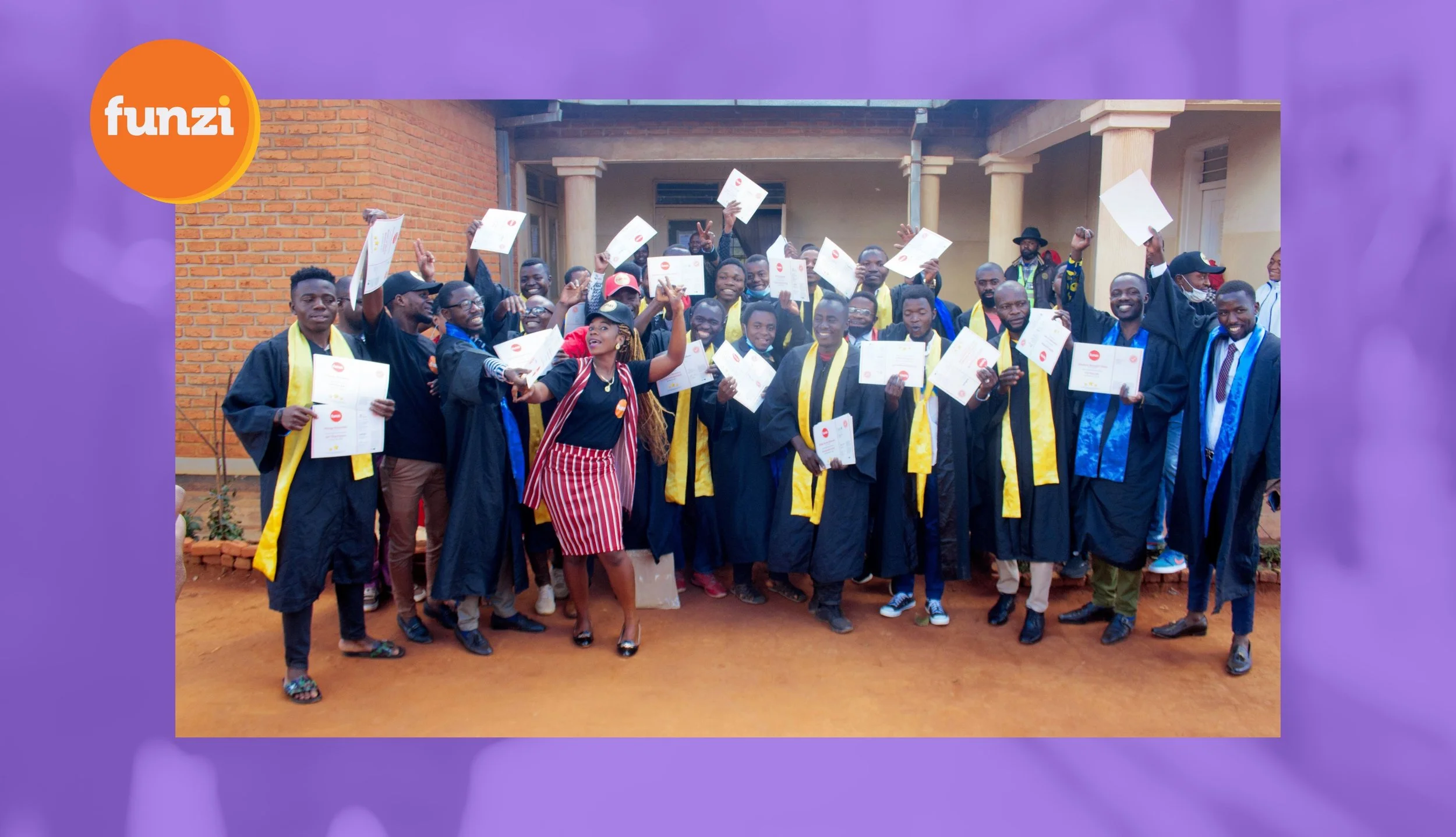How Funzi is sparking hope through learning?
Dzaleka refugee camp in Malawi, Eastern Africa, is populated by 76,000 asylum seekers, mainly from the Republic of Congo, Burundi, Rwanda, as well as other countries in conflict. The asylum seekers were forced to leave their homes due to the conflict and crisis in their home countries. Although many of them left because they were not safe, or the situation in their country was too volatile, living in a refugee camp comes with its own challenges. “Life at the camp is very harsh. Each person receives monetary assistance that enables them to buy 6 kilograms of maize. In addition to that, people at the camp receive cooking oil and salt”, says Mmunga Lulaca, an asylum seeker from Congo. Most people living in the camp try to get additional income to be able to purchase necessities, like firewood or charcoal. To maintain a livelihood, residents must think outside the box.
Why learning new skills is the key?
Learning new skills and receiving an education is vital to creating a meaningful livelihood that helps people survive. Many refugees at the camp work for non-profit organizations that grant them an additional allowance or a stipend each month. They also may look into starting their own businesses to increase their income. Having the courage to start a business often requires learning new skills, but opportunities are limited. Therefore, learning and education play a pivotal role in helping refugees move up socioeconomically and have more financial security. “Small businesses are running at the camp to respond to some daily primary needs. The refugees who don't have the skills to start a business, or have a qualification to find a voluntary job to receive an allowance, are at very high risk”, says Lulaca.
How do Funzi courses help to achieve goals?
Mmunga came across free Funzi courses through Facebook Free Basics while applying for a nonprofit organization job. "Funzi course ‘Get that job’ enhanced my interview skills and helped me to land a job at ProFuturo as a volunteer digital lab teacher, under Jesuit Refugee Service (JRS),” Lulaca explains. Before taking the course, he had several unsuccessful interviews. Learning with Funzi has also motivated him to start his own business on the side.
Lulaca joined the Funzi Ambassador program and started a local academy at the camp. With Funzi courses, he strives to help others expand their knowledge and learn meaningful skills that can help them change their lives. He now hosts study groups that gather regularly. Peer-to-peer motivation allows learners to progress, and by the end of each study period, learners arrange a graduation ceremony. Lulaca, like many of his peers, has not received any formal education post-high school. So finding accessible learning opportunities is critical.
Ninety-two percent of the enrolled students have completed the Funzi program in Dzaleka. The courses have helped the refugees build confidence and skills to start their businesses. A female graduate who completed Funzi's ‘Founder 101’ course started her own peanut butter business. Another learner now runs a beauty saloon to create an extra stream of income. By the end of 2020, over 300 learners have participated in the Funzi program. The program has piqued interest in camp management and humanitarian organizations, with many of their leaders participating in the graduation ceremonies to show their support.
How do Funzi courses help to achieve goals?
The program is beneficial to the community as well as helping the individuals. New learners are enrolled in the program through social media, posters, flyers, and the local radio station. The program supports learners through the course instructions and encourages them to complete the course. Many students believe that Funzi courses enable them to develop their capacity to think. New skills are essential for people in Malawi and help them to come up with new livelihoods. In addition, learning allows them to tackle financial, health, social problems, as well as come up with a positive social change and achieve their goals.
COVID-19 pandemic has taken its toll on the Dzaleka camp as well. With school closures, learners went online. As a result, Funzi courses have become even more popular in Malawi due to fewer in-class education opportunities. Funzi launched a course, 'COVID-19: Adapt and thrive', to provide reliable information about the pandemic, preventative measures, and how to stay healthy during the crisis. “Everyone at the camp is talking about Funzi,” says Mmunga.
Go to funzi.mobi to get familiar with our courses and learn more about how Funzi uplifts learners.


